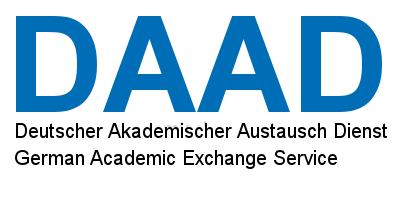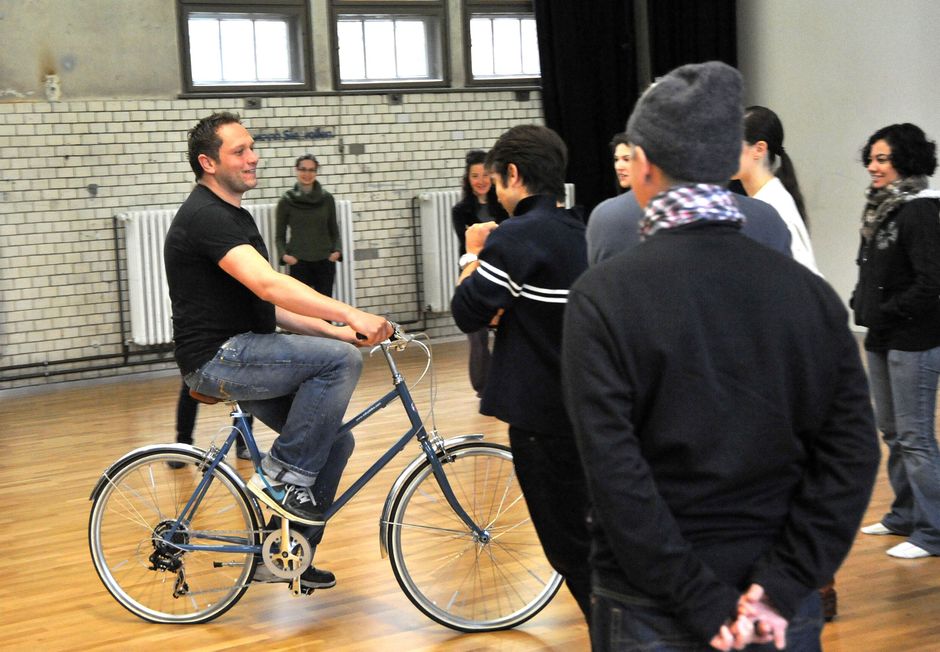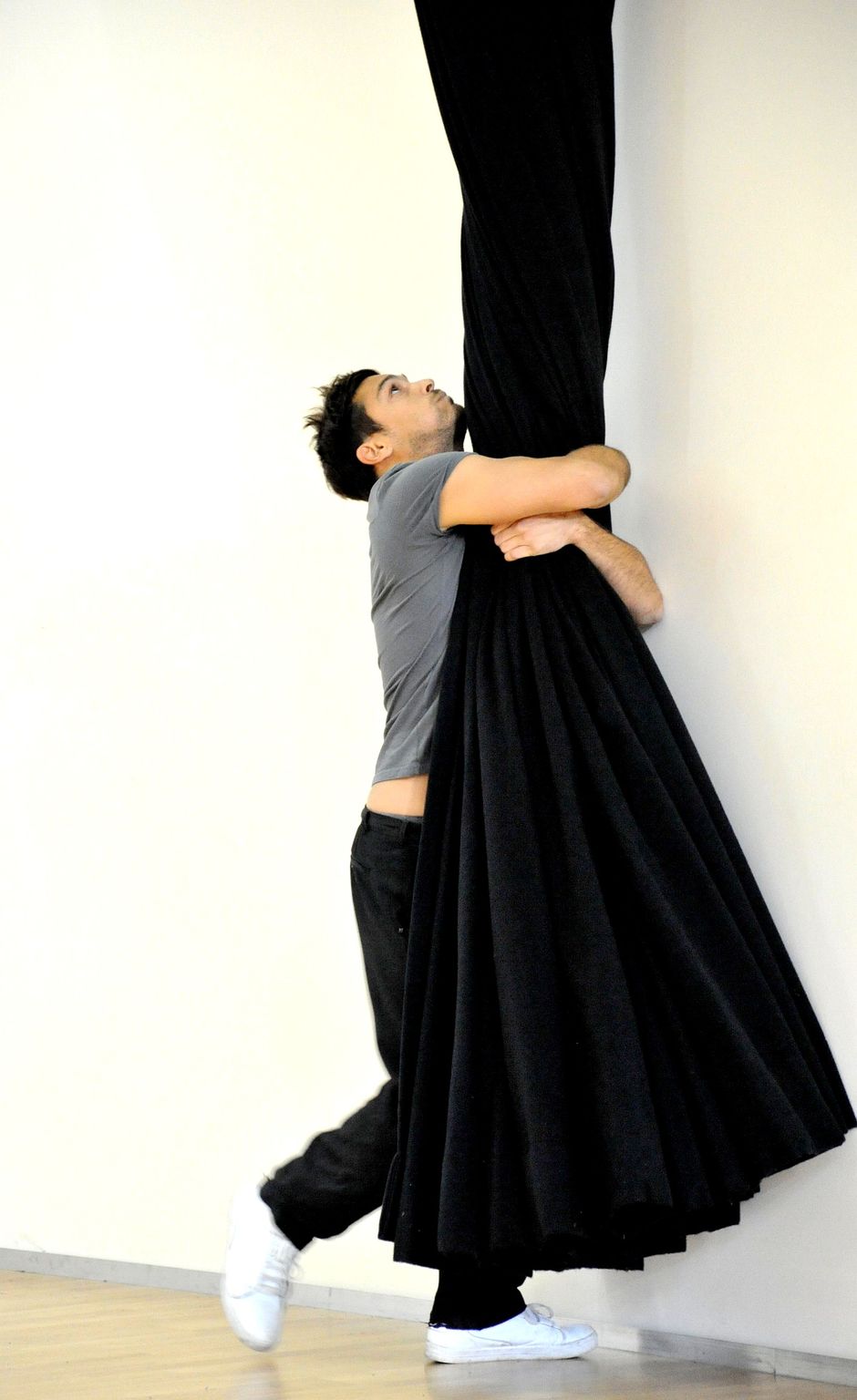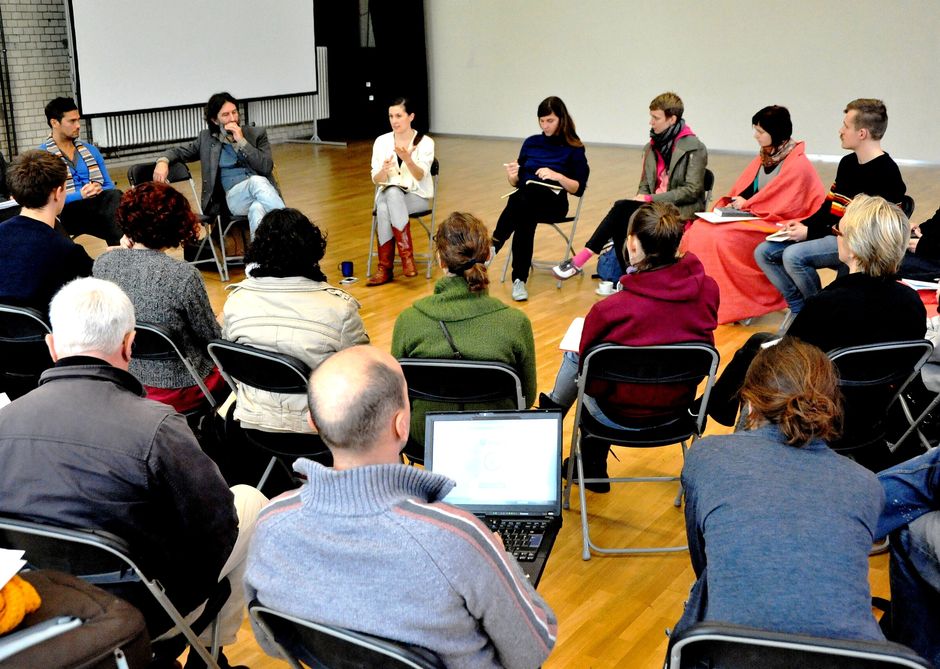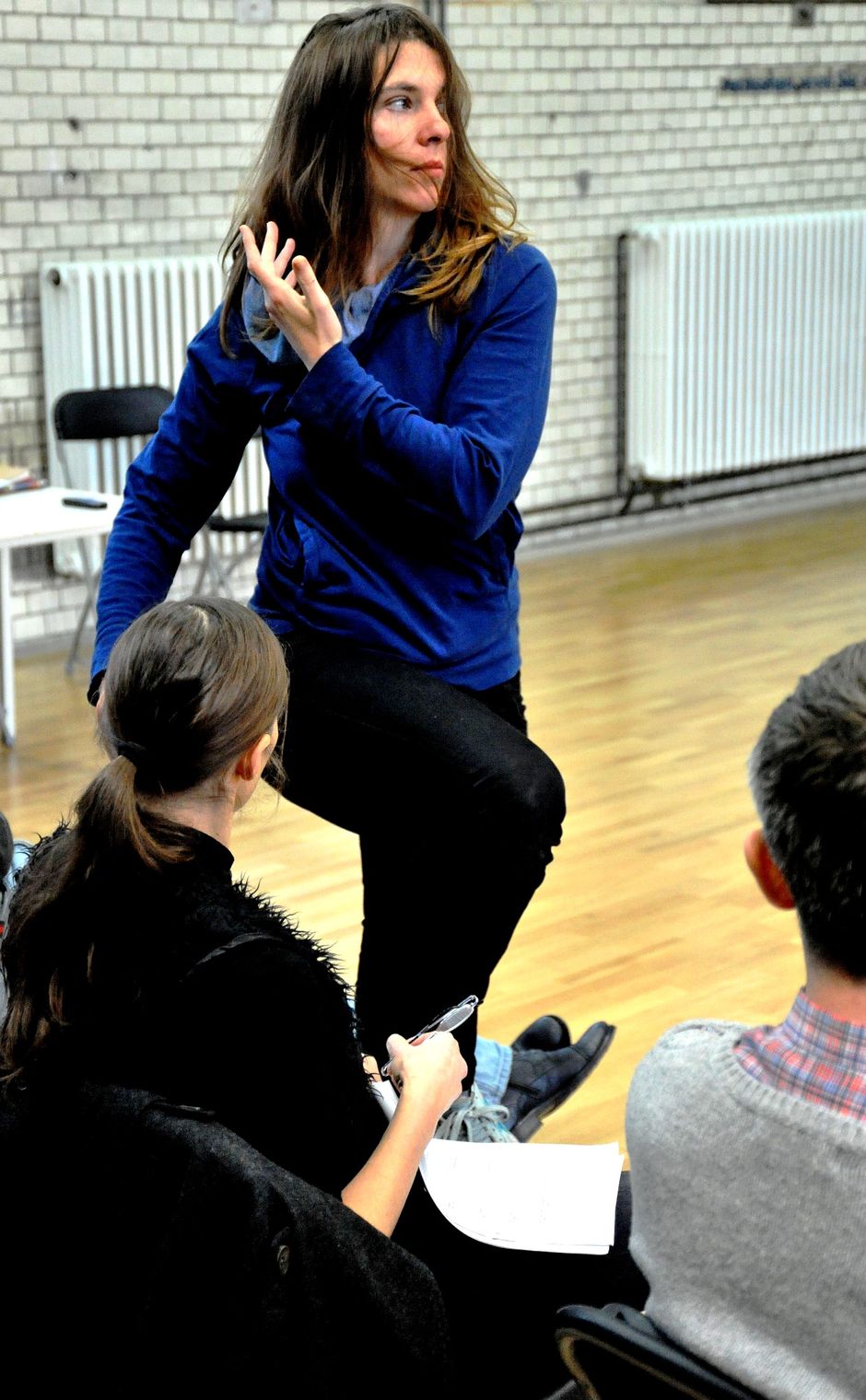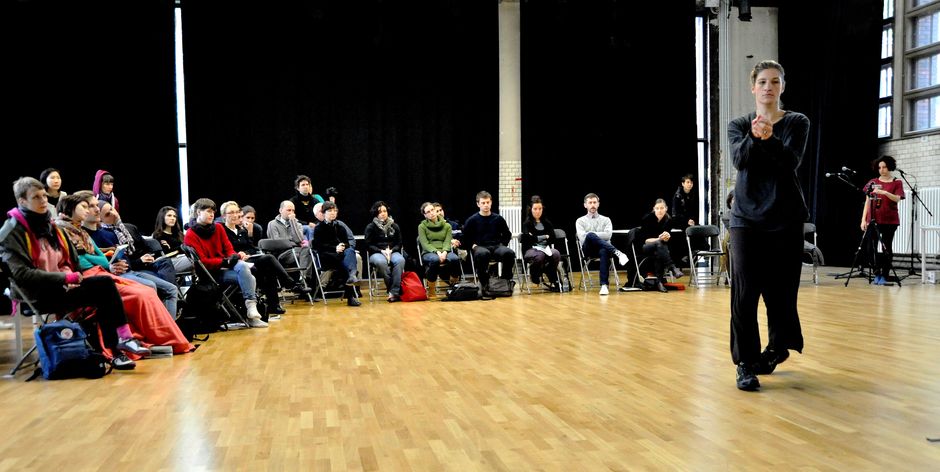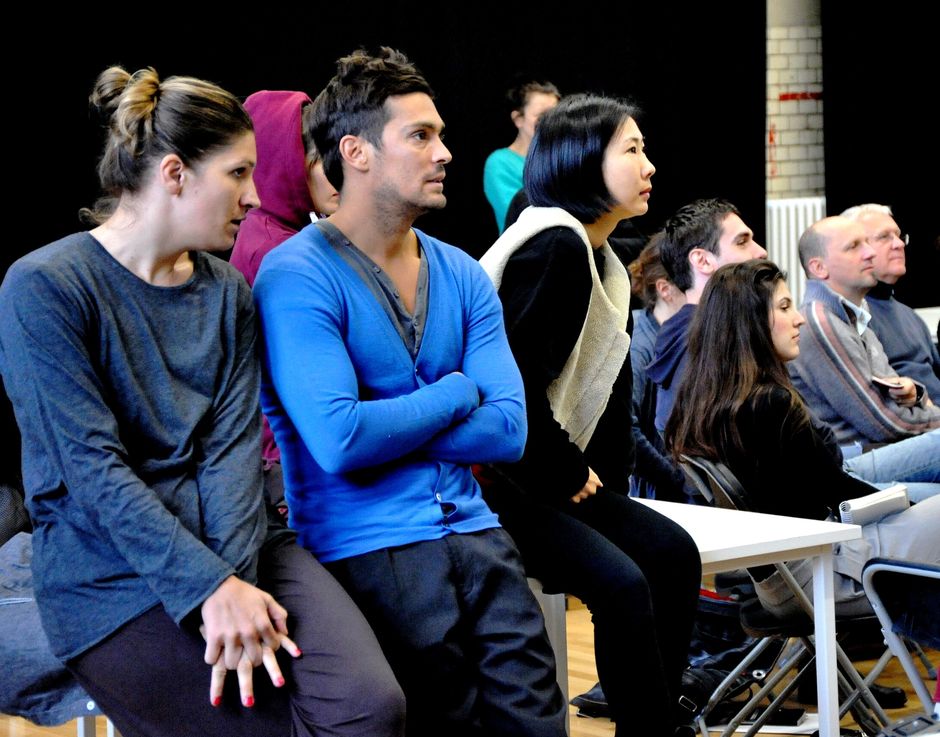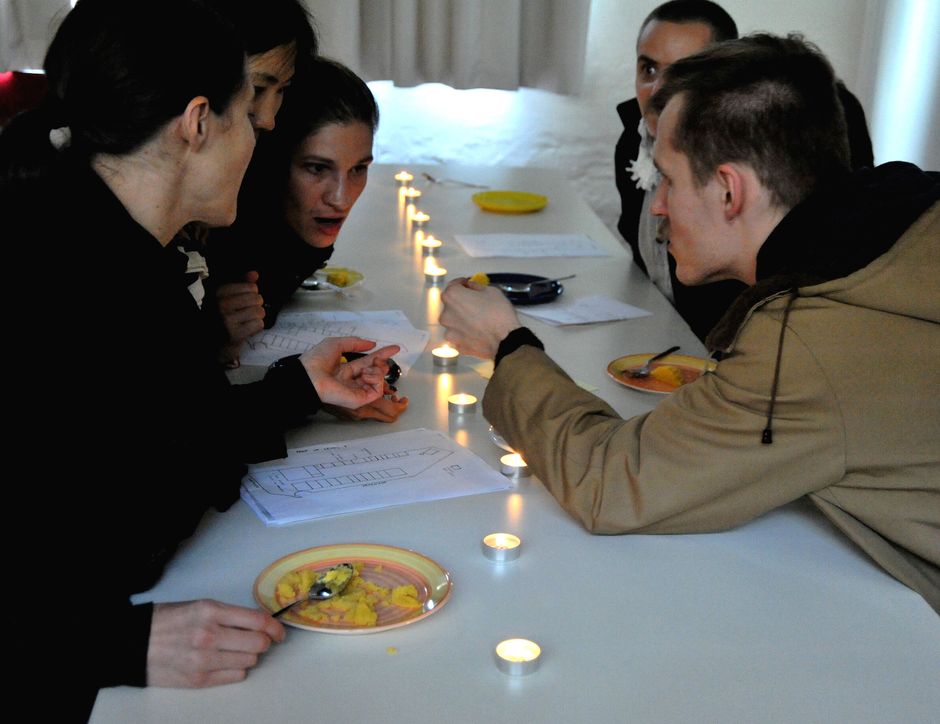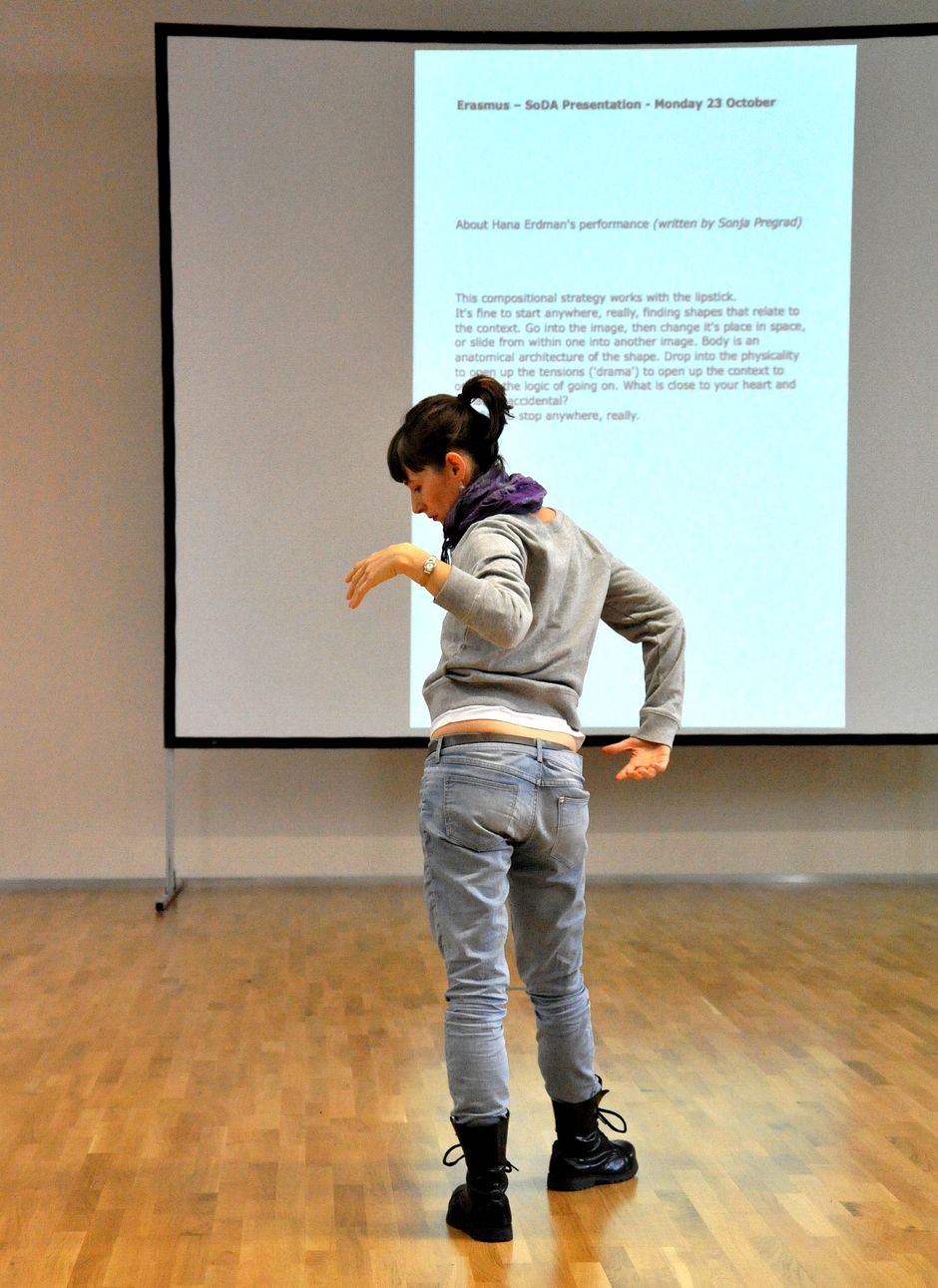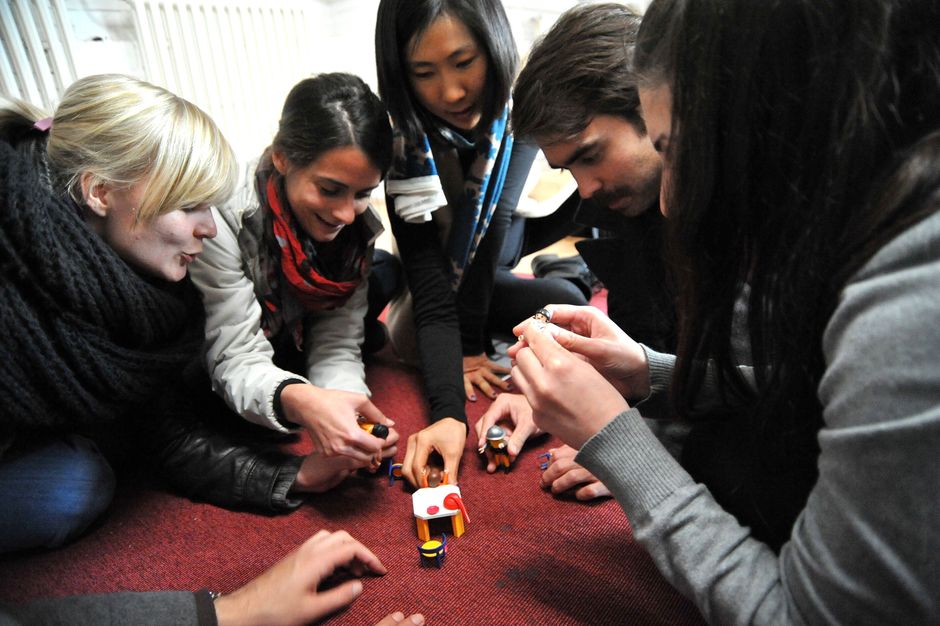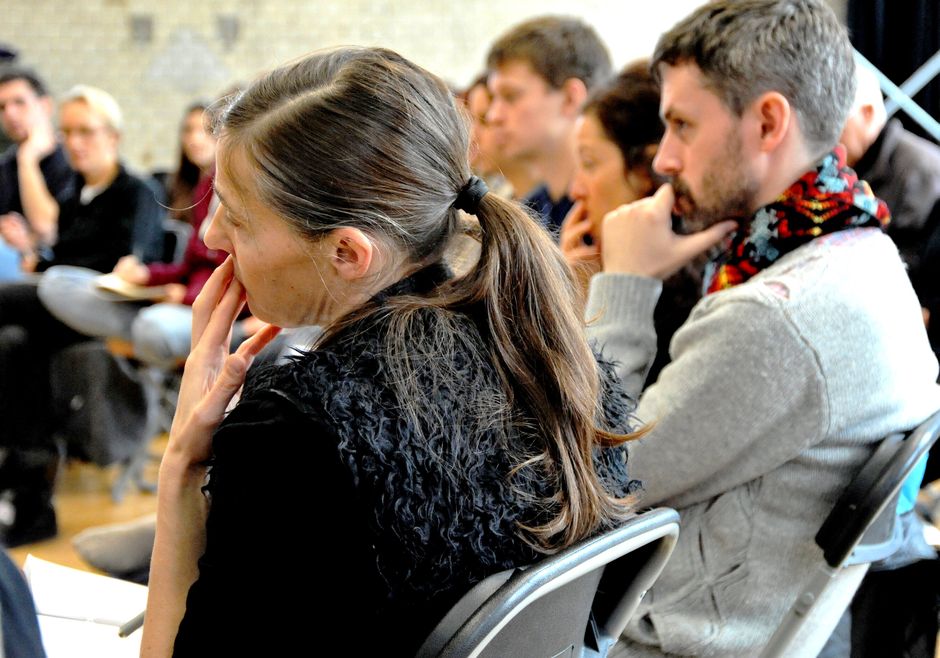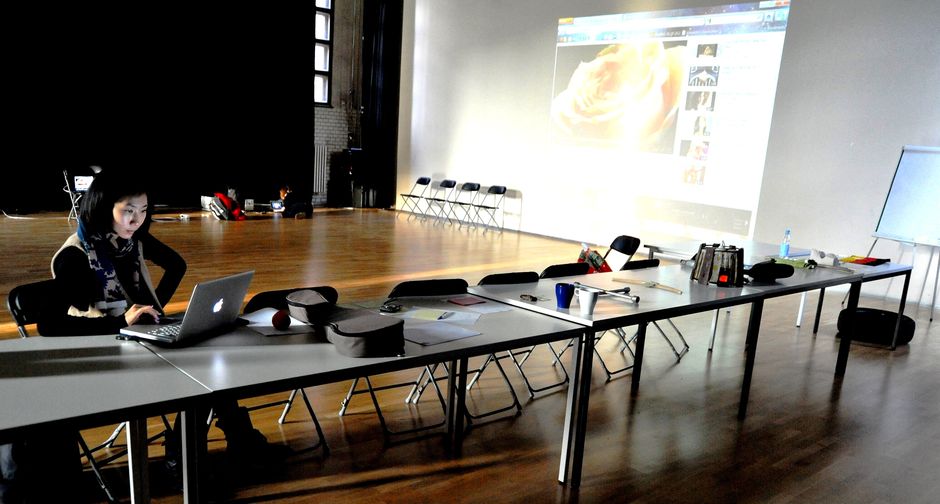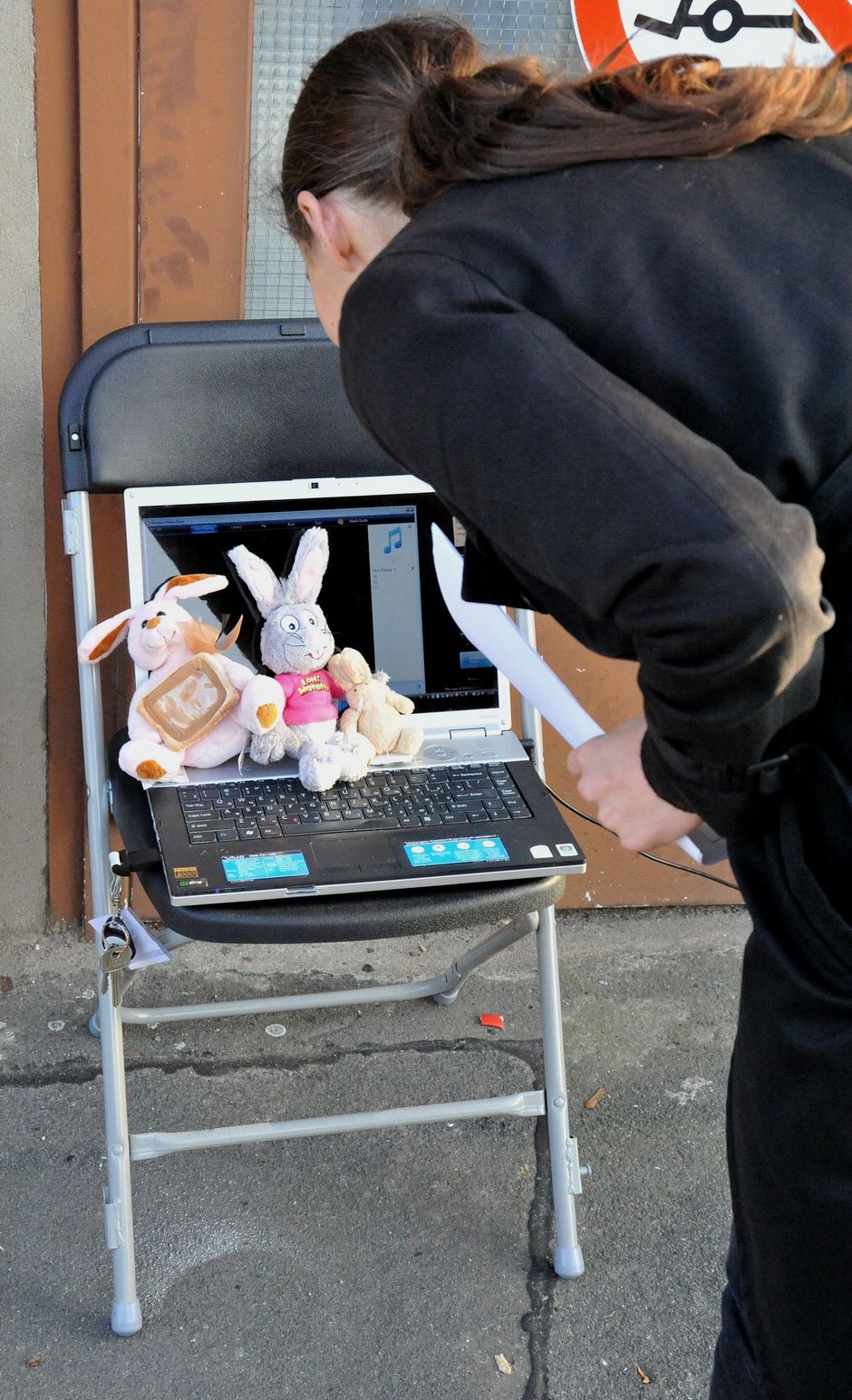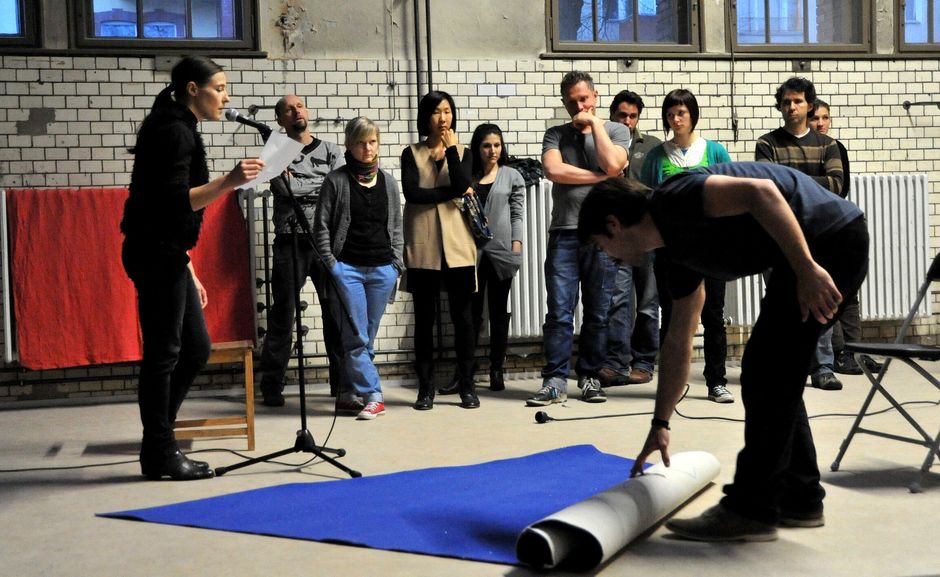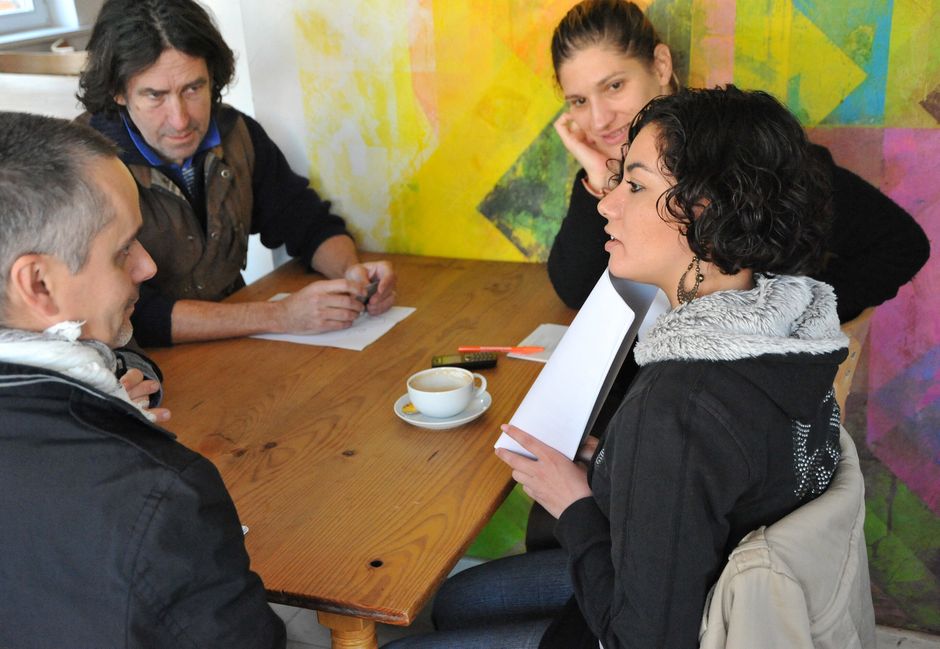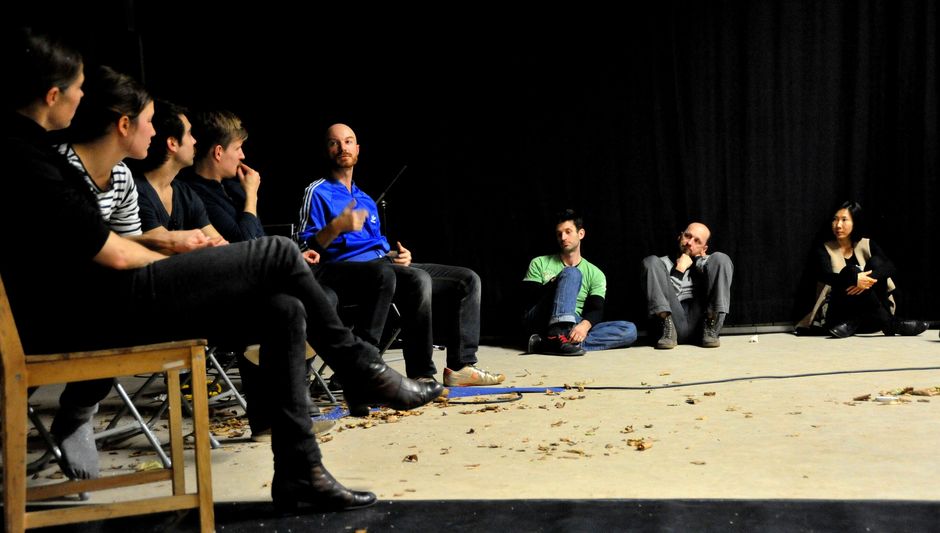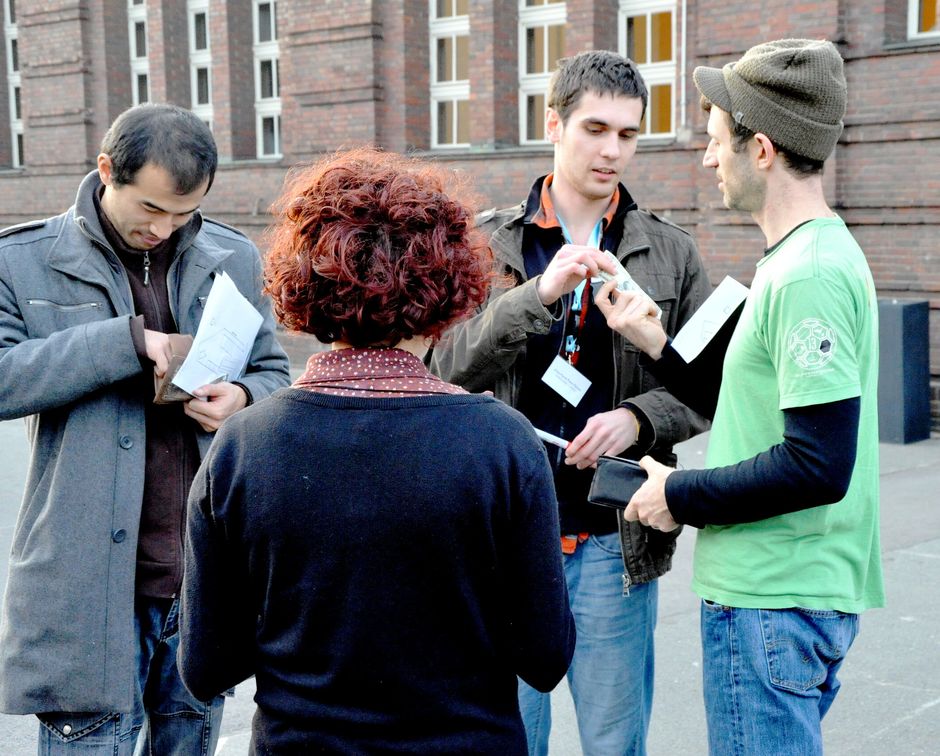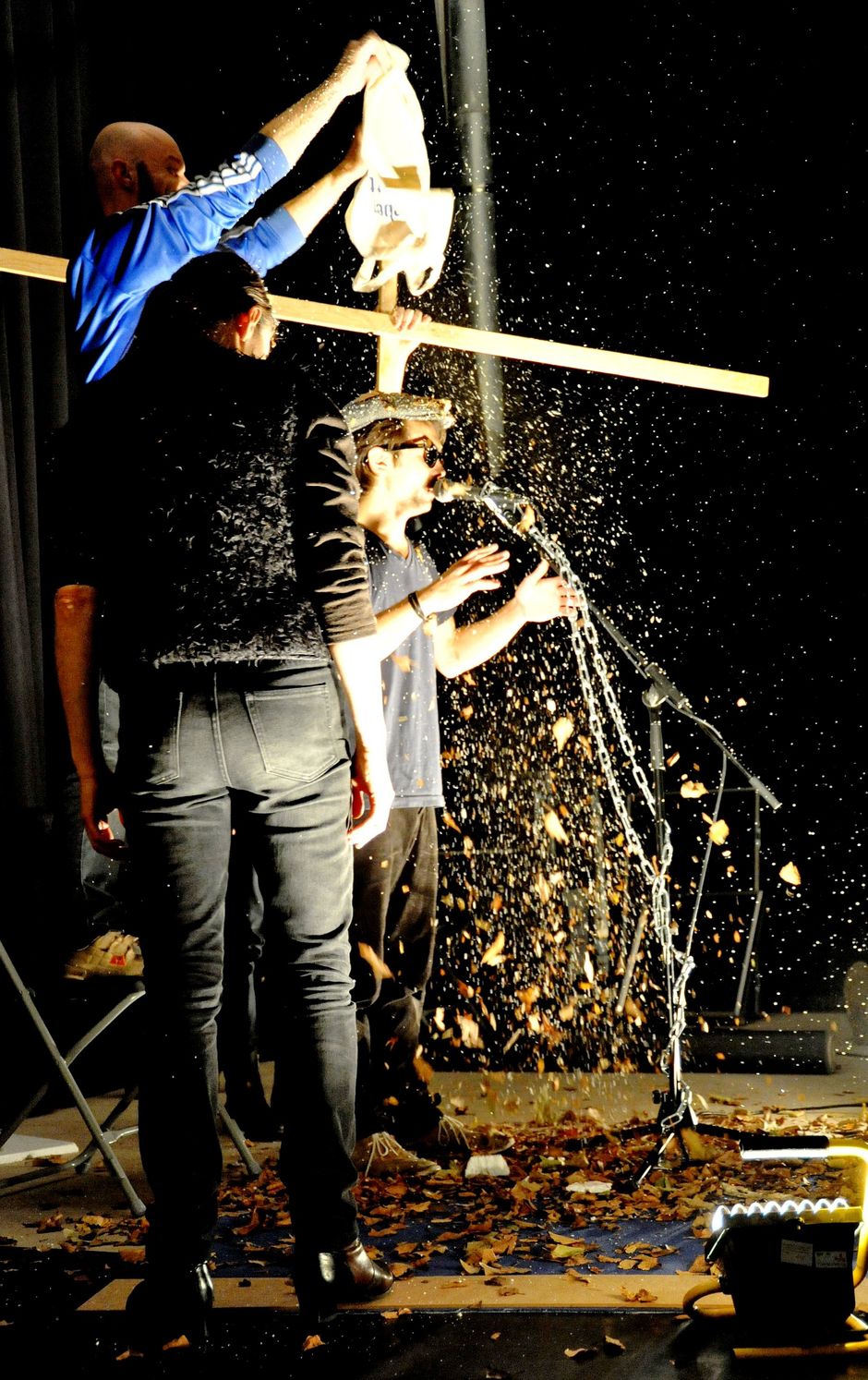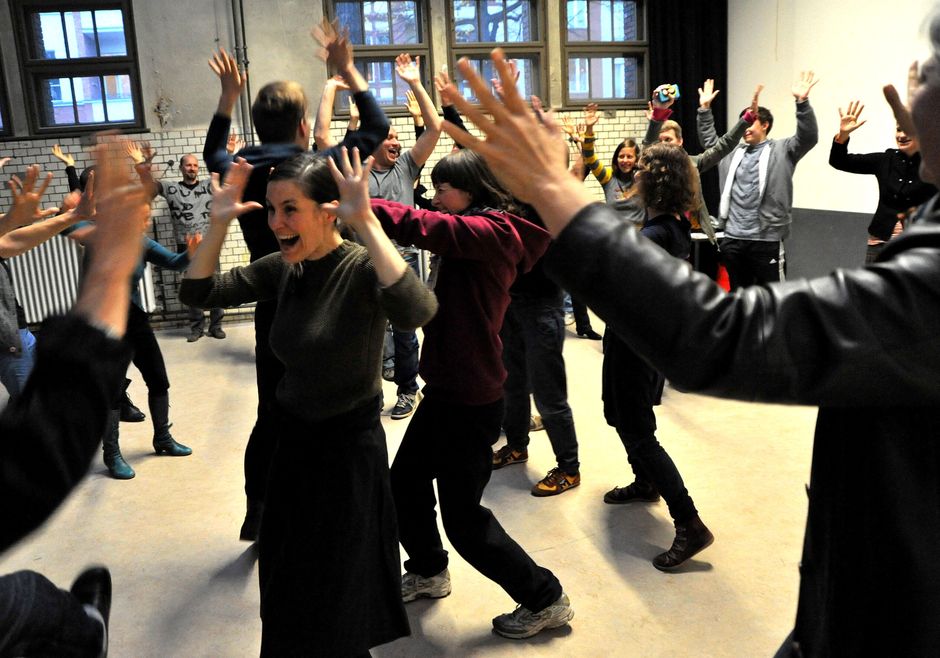Erasmus Intensive Programme (2011-2013)
Practicing Composition: Making Practice
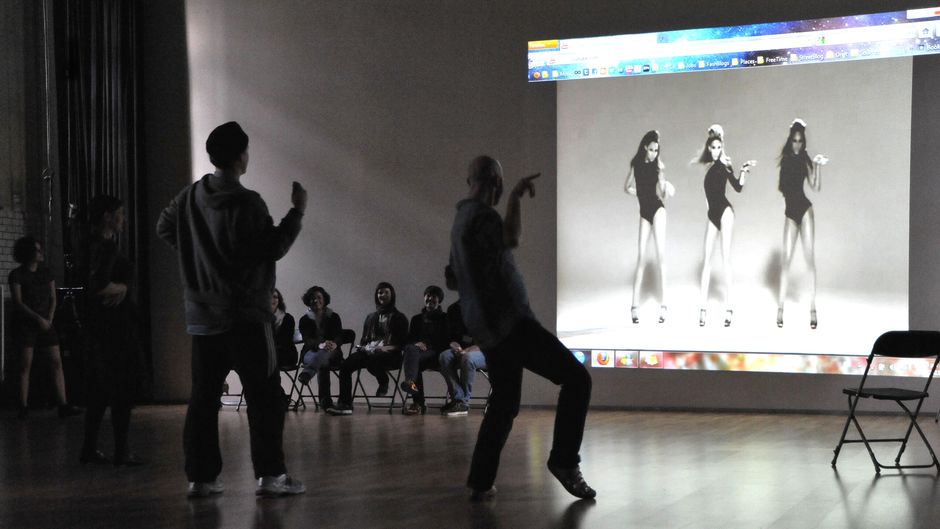
Das Erasmus Intensive Programme schaffte einen den Rahmen für einen lebendigen, interaktiven Austausch, die Diskussion und Analyse dramaturgischer, kompositorischer und choreographischer Methoden zur Produktion und Komposition körperbasierter Performances, die in fünf praxisorientierten akademischen Tanz- und Choreographieprogrammen in Europa. Im Zentrum des IP stand die Frage, wie sich diese Ansätze unterscheiden oder sich gegenseitig ergänzen; und welche pädagogischen Methoden bestehen, um eine praxisorientierte Ausbildung für die Komposition und Gestaltung von Aufführungen zu entwickeln, zu trainieren und zu lehren.
Hauptziel des IP war es, innovative und generative Ansätze für die Komposition zu benennen, zu bewerten und in die Programme der Partner zu integrieren und zu prüfen, wie sie im Kontext der aktuellen Berufspraxis geteilt und verknüpft werden können.
Die Teilnehmer des IPs waren Doktoranden und Mitarbeiter aus fünf europäischen praxisorientierten und studienbegleitenden Masterstudiengängen in Choreographie, Tanz und Dramaturgie mit Verbindungen zu unabhängigen beruflichen Netzwerken und anderen verwandten Programmen innerhalb des Hochschulbereichs.
Zu den Hauptaktivitäten des IP gehörten das gemeinsame Entwickeln und Aufführen von Performances, die multidisziplinäre, technische, kontextuelle, theoretische oder konzeptionelle Strategien für die Komposition nutzen; das Entwickeln interdisziplinärer und praxisorientierter Methoden für die künstlerische Kompositionsforschung; der Austausch von Performance-Arbeiten und die Entwicklung von Formaten für die Veröffentlichung und Verbreitung der Ergebnisse des IP.
Die Formate und Angebote des IP sollten die Teilnehmer*innen befähigen, kompositorische Werkzeuge, Strategien und Techniken für ihre eigene und kollaborative Arbeit zu nutzen; sich mit Kontexten von kompositorischen Strategien und Taktiken auseinanderzusetzen; mit Künstlern und Praktikern anderer Disziplinen und Ansätze zu kommunizieren und zusammenzuarbeiten sowie Kenntnisse aus anderen Disziplinen und Ansätzen für ihre eigene künstlerische Entwicklung zu nutzen.
Akkordeon Teilnehmende MA Studienprogramme und Info EI
Hochschulübergreifendes Zentrum Tanz Berlin (HZT) [MA Solo/Dance/Authorship SODA]
Solo/ Dance/ Authorship forms a poetics: a means of making; a compositional approach to contemporary practice. It questions the terms of its own constitution and in doing so opens potential and generative areas of enquiry. The MA-SODA does not therefore propose a restricted approach to solo dance making, but sets up the conditions that allow students to identify and develop for themselves and with others their compositional and embodied practice and its contexts. ‘Solo/ dance/ authorship’ as a mode of enquiry does not seek to establish a definition of its terms but proposes an increasing understanding of the range of its possible manifestations, contexts and applications.
TeaK/ Helsinki [MA Choreography]
The concept of choreography is treated as a cultural construction and as such it is a terrain for new founding in every work of art. Therefore the pedagogy could not be based on any existing genres or styles of dance and composition but it has to set its starting point on a more profound level of bodily existence, kinaesthetic experience and artistic knowledge. The pedagogical aim is to offer both means to create and understand historically grown forms of movement composition but also means to analyse and deconstruct the organizing principles behind these forms. This double strategy is challenging for the students (and the teachers) but it aims to support with professionalism and artistic quality the student’s ability to renew the perceptual forms and manifestations of dance art in order to be in true interaction with his/her lived world.
ArtEZ/ Arnhem – [MA Choreography]
Central to the program is a practico-theoretical investigation of the tension(s) between improvisation/composition, process/product and materiality/immateriality. From within the individual choreographic practice-based research, students identity specific questions/problems which are then unfolded in three different but intimately inter-related discourses: the choreographic work itself, the written thesis and the branding materials.
TrinityLaban/ London – [MA Dance Theatre]
The programme provides the opportunity for students to engage in the creation of dance theatre work which pushes at the boundaries of the discipline. This will be work that focuses on the live act and does not necessarily involve the display of technique or the abstract arrangement of bodies moving in space. It will not always appear in dance spaces, and may address an audience outside of theatrical frameworks – or it may redeploy these techniques, spaces and frameworks to position the performing body in new relationships to the bodies of the spectator. The interrogation of ideas of ‘the body’ and of ‘performance’, as posed by traditions of dance and theatre as well as by other art forms, are central to student’s research.
Academy of Dramatic Arts/ University of Zagreb – [MA in Dramaturgy]
The MA program has been designed to meet the requirements of ever changing (in)discipline of dramaturgy and the dramaturge’s role in performance, film and media arts. The reasons for making such a programme have arisen from the deep connection of our studies with art production itself and the entire cultural life not only in Croatia, but abroad as well. We have laid emphasis on the group work, collaborating skills, getting to know cultural, social, political and market conditions as regards art production and creativity, articulation and reflective skills in the field of art and the skills of creating conditions for independent work. The program is based on an integration of individual projects, taught curriculum and research.
ERASMUS Intensivprogramme der Europäischen Kommission
Ein Intensivprogramm (IP) war ein Kurz-Studienprogramm, das Studierende und Lehrkräfte von Hochschulen aus mindestens drei Teilnehmerländern zusammenführte. Es konnte von 10 Tagen bis zu 6 Wochen fachbezogener Arbeit dauern.
Das Ziel der IP war:
Die Förderung einer effizienten und multinationalen Lehre von Fachthemen, die sonst gar nicht oder nur an einer sehr begrenzten Anzahl von Hochschulen unterrichtet werden könnten;
Studierenden und Dozenten in die Lage versetzen, in multinationalen Gruppen zusammenzuarbeiten und so von speziellen Lern- und Lehrbedingungen zu profitieren, die in einer einzigen Institution nicht möglich sind, und neue Perspektiven für das zu untersuchende Thema zu gewinnen;
Den Mitgliedern des Lehrkörpers die Möglichkeit geben, sich über Lehrinhalte und neue Lehrplanansätze auszutauschen und Lehrmethoden in einem internationalen Klassenzimmerumfeld zu testen.
Förderer

